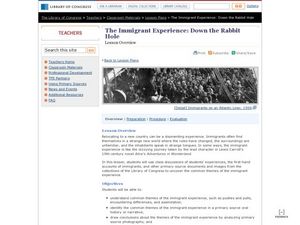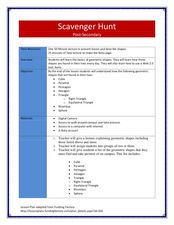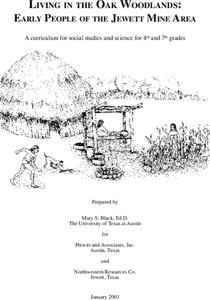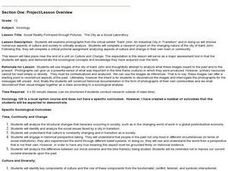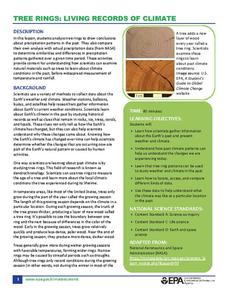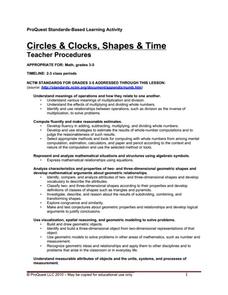Curated OER
Creative Writing Poem
Fifth graders write poetry using imagery and practice poetry presentation. In this poetry lesson, 5th graders listen as the teacher reads a humorous poem using different voice modulations and presentation techniques. They discuss the...
Curated OER
The Problem with Prejudice
Third graders read and discuss "The Hangman" by Maurice Ogden and answer questions about the poem. They list things they can do to combat prejudice using each of the letters in the word and create a small poster with a slogan against...
Curated OER
The Immigrant Experience: Down the Rabbit Hole
Young scholars relate the immigrant experience to Lewis Carroll's Alice's Adventures in Wonderland. In this immigration experience lesson, students read Lewis Carroll's Alice's Adventures in Wonderland and relate it to the immigrant...
Curated OER
Germs and the Importance of Washing Your Hands
Students determine the importance of hand washing through experiments. In this hand washing and germs lesson, students listen to a reading of Germs! Germs! Germs! by Bobbi Katz, and discuss what they learn about germs. They experiment by...
Curated OER
Chemical Interactions
Students perform scientific investigations to observe chemical reactions. In this chemical reaction lesson students read a passage and identify the cause and effect.
Curated OER
50th Anniversary of Brown v. Board of Education
Students examine a poster of Brown v. Board of Education and discuss what the important details are. They read the story behind the poster and court case. They role play different sections of the case such as the court case or Linda...
Curated OER
The Kansas-Nebraska Act of 1854: Popular Sovereignty and the Political Polarization over Slavery
High schoolers read selections from the Declaration of Independence, Northwest Ordinance of 1787, and the Wilmot Proviso of 1846. They contrast the maps of 1820 and 1854 to analyze developments in the national debate over slavery. They...
Curated OER
Eatem Up!
Students identify, interpret and demonstrate a positive learning attitude. They identify, comprehend and use basic concepts and skills and then, communicate clearly in oral, artistic, written, and nonverbal form. Students also identify...
Curated OER
Language Arts Exploration
While an interesting lesson idea involving the exploration of a story about an Asian American boy named Imduk, a teacher would need to have assess to the Scott Foresman reading program to make this work. If not, a teacher could use...
Curated OER
Scavenger Hunt
Young scholars collect data about lighting conditions around a room using a light sensor and RCX. They use software to upload and analyze the data in order to draw conclusions about light intensity in the room.
Curated OER
Volume of Irregular Objects
Fifth graders experiment using a Meniscus. In this volume lesson, 5th graders identify the volume of irregular objects using the process of water displacement. Students record data and draw conclusions.
Curated OER
Living in the Oak Woodlands: Early People of the Jewett Mine Area
Learners examine the archeology and native peoples of the Jewett Mine area of Texas. Using a map, they explain the economic patterns of the native groups and how the geography of the area affected activities. They compare and contrast...
Curated OER
Prisoner of War
Students study prison life during the Civil War. As a class, they brainstorm questions about prison life. In groups, students read primary source documents that give clues to life in a civil war prison. Students draw conclusions and...
Curated OER
Ane Frank: Writer
Tenth graders investigates a website to gather information on the Holocaust and Anne Frank. They compare Anne Frank's characteristics to other peers. Students explore specific examples and draw conclusions about human behavior.
Curated OER
Social Reality Portrayed through Pictures: The City as a Social Laboratory
Twelfth graders analyze and research physical and cultural changes to the city of St. John. Viewing photographs in a virtual exhibit, 12th graders draw conclusions about the culture and societal norms in St. John through the years. ...
Curated OER
PICTURE READING - PARAGRAPH WRITING
Students investigate the elements found in a media image. The image is used to compose a descriptive paragraph. They exchange papers to discuss the writing and make changes using constructive criticism. Students also make connections...
Curated OER
Lesson 4: Text-to-World Connections
Making connections to the text you're reading may help build a deeper appreciation and understanding of the material. Second graders practice making text to self and text to life connections as they read two passages; one about Martin...
US Environmental Protection Agency
Tree Rings: Living Records of Climate
Open with a discussion on weather and climate and then explain how tree rings can provide scientists with information about the earth's past climate. Pupils analyze graphics of simulated tree rings from various US locations for the...
Institute of Electrical and Electronics Engineers
Insulators and Conductors
In a classic activity, emerging electricians test various objects for electrical conductivity in a circuit. Each group constructs a simple circuit by following a diagram. Predictions are made and objects are inserted into the circuit,...
Curated OER
Magazine Madness
Young scholars look at pictures cut out of magazines to determine what is happening in the picture and predict what will happen next.
Curated OER
Circles and Clocks, Shapes and Time
Students work in groups to research clocks and practice telling time. For this telling time lesson, students use the computer program ProQuest to study circles, including radius and diameter, and practice drawing circles using a compass....
Curated OER
Analyze The Learner; Chocolate Fractions
Third graders describe, represent and compare fractions using pieces of a chocolate bar. In this fractions lesson, 3rd graders demonstrate how to read and write fractions correctly. Students then integrate technology by using the...
Curated OER
Using Primary Sources in the Classroom
Students draw their own conclusions by studying documents created in the past.
Curated OER
Inductive Reasoning
In this science learning exercise, learners read two example problems that include a problem, observation, and conclusion. Students also answer 2 questions using inductive reasoning.




